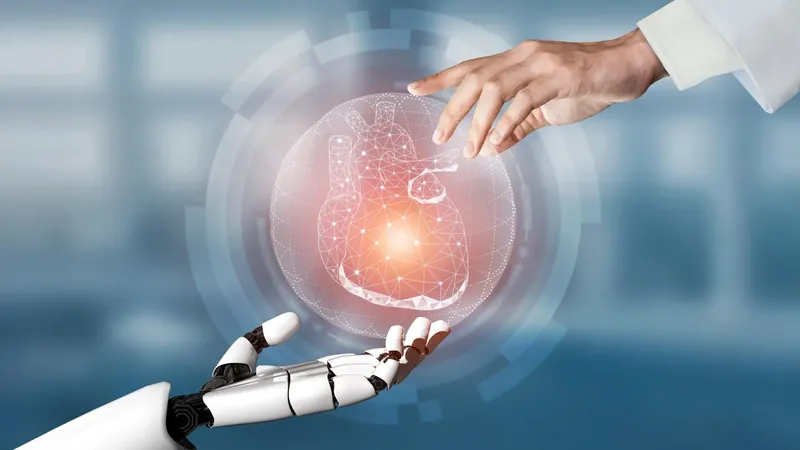
Unlocking Hidden Heart Risks: How AI is Transforming CT Scans
2025-06-24
Author: Wei
Imagine if a routine chest CT scan could reveal hidden heart risks that many overlook—well, it can, thanks to a groundbreaking study that harnesses the power of artificial intelligence.
In a recent revelation by Dr. Hugo Aerts, director of the Artificial Intelligence in Medicine Program at Mass General Brigham, it was found that millions of chest CT scans performed annually, often on healthy individuals for lung cancer screening, contain vital cardiovascular information that typically goes unnoticed. This study highlights a potential game-changer for clinicians and their patients.
The Heart of the Matter: Calcium Deposits and Cardiac Risk
Chest CT scans can identify calcium deposits in the heart and arteries, a critical indicator of heart attack risk. While the conventional method for assessing coronary artery calcium (CAC) uses specialized 'gated' CT scans that align with the heartbeat, the majority of scans conducted for routine check-ups are 'nongated'—leaving a treasure trove of information untapped.
Enter AI-CAC, a revolutionary deep learning algorithm designed to analyze these nongated scans. By exploring existing CT scans from veterans across 98 medical centers, the researchers trained AI-CAC to quantify CAC levels and predict cardiovascular events.
How Accurate is AI-CAC?
The results were impressive. The AI-CAC model showcased an accuracy of 89.4% in identifying the presence of CAC on scans. For patients with detected calcium, it offered an 87.3% accuracy rate in determining whether their scores indicated moderate cardiovascular risk—an essential insight for early intervention.
Furthermore, the findings pointed to a significant correlation between high CAC scores and increased mortality risk. Patients with CAC scores over 400 faced a staggering 3.49 times higher risk of death over a decade compared to those with scores of zero. Notably, almost all patients identified with very high CAC scores were deemed likely to benefit from lipid-lowering therapies.
A Paradigm Shift in Preventive Medicine
Dr. Raffi Hagopian from the VA Long Beach Healthcare System emphasized that the vast number of nongated chest CT scans could revolutionize cardiovascular risk evaluation—transforming healthcare from a reactive to a proactive model that reduces costs and improves outcomes.
While this study marks a significant milestone, it was conducted solely with a veteran population, and future research aims to assess its applicability in the general public and the impact of treatments on CAC scores.
With AI-CAC, the future of heart health detection is not just promising but revolutionary, offering new hope for early intervention and improved patient outcomes.


 Brasil (PT)
Brasil (PT)
 Canada (EN)
Canada (EN)
 Chile (ES)
Chile (ES)
 Česko (CS)
Česko (CS)
 대한민국 (KO)
대한민국 (KO)
 España (ES)
España (ES)
 France (FR)
France (FR)
 Hong Kong (EN)
Hong Kong (EN)
 Italia (IT)
Italia (IT)
 日本 (JA)
日本 (JA)
 Magyarország (HU)
Magyarország (HU)
 Norge (NO)
Norge (NO)
 Polska (PL)
Polska (PL)
 Schweiz (DE)
Schweiz (DE)
 Singapore (EN)
Singapore (EN)
 Sverige (SV)
Sverige (SV)
 Suomi (FI)
Suomi (FI)
 Türkiye (TR)
Türkiye (TR)
 الإمارات العربية المتحدة (AR)
الإمارات العربية المتحدة (AR)